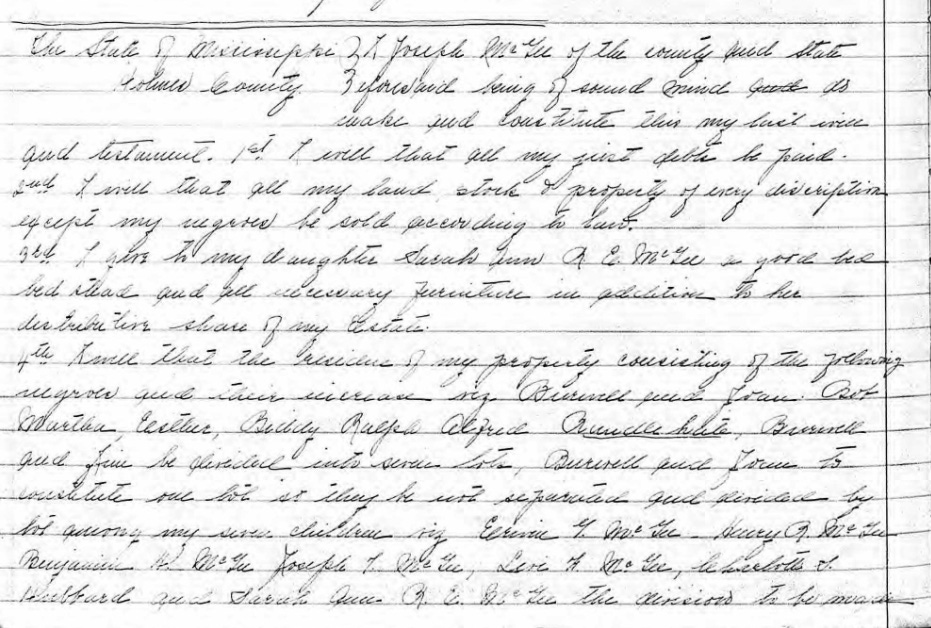Acknowledgement Genealogy and Ancestor Trouble
One thing critical race theory opponents can’t do is prevent people from disclosing their own ancestors’ participation in enslavement & genocide. That’s something all of us with that history must do.
As laws sweep across the states to prohibit teachers from discussing slavery and its legacy, one thing critical race theory opponents can’t do is prevent people from disclosing their own ancestors’ participation in enslavement and genocide in this country. That’s something all of us with that family history need to discuss publicly. Every last one of us. Systemic change begins with individual choices.
The only gift of having an overt white supremacist and slavery proponent for a father was that I never had the luxury of deciding not to know about my ancestors’ enthusiastic participation in slavery. Until the past few years, though, I was unaware of their role in the displacement and murder of Native people. To a large degree, I can see in hindsight, that’s because I chose to be unaware. And also, I didn’t have a parent drawing a circle around it and arrows toward it and lecturing me from a 1948 World Book Encyclopedia, as my father did on the subject of slavery in the American south.
I’m slowly putting together ideas for a possible class on what I call “acknowledgement genealogy.” It’s inspired by land acknowledgement, organizations like Coming to the Table, and Jennifer Mendelsohn’s Resistance Genealogy. Mendelsohn, a professional genealogist, writes about her own family and helps other people root out family secrets. Her resistance genealogy tends to focus on the ways right-wing politicians’ family trees fly in the face of their own white supremacist attitudes toward immigration, whereas acknowledgement genealogy as I envision it invites each of us whose ancestors participated in the harms around this country’s origins (or any similar harms) to learn about those harms, be public about them, and commit ourselves to taking up the work that that needs to follow. Half of the proceeds will be donated to organizations that work to mitigate these histories, and I’m actively taking suggestions.
Let me be clear: the idea of this sort of acknowledgement is far from new, and I claim no ownership of it. Anyone else who’s interested in this kind of work and drawn to the idea of acknowledgement genealogy, and the phrase, is welcome to run with them in any harm-mitigating direction they choose. “Know where your own people come from,” says the Manna-Hatta Fund, an Indigenous organization I support. And to the extent we are able do that, we can also begin to relieve ourselves of the burden of individualism, of the sense that each of us is an Athena who leapt from Zeus’ head, fully-formed, into the world and acts an independent agent and should be perfect.
One of my goals is to create a kind of citizen-genealogy how-to for anyone who’s willing to take up the challenge, and a collaborative space for discussing effective forms of acknowledgement. A secondary goal for me, but one I believe is equally important for those of us who come from the ancestor-erasing traditions of modernity and whiteness, is to welcome in a spiritual or imaginative space in which people whose ancestors committed these harms might find a sense of positive connection and backing with their earlier ancestors. Including this is much trickier than the solemn nuts and bolts of discovery and ownership, in many ways. At the same time, this sense of possibility of connection—whether true or imagined—to ancestral energies that feel deeper, older, healthier, and more earth-honoring, can help those of us with monstrous family histories stay committed to this crucial work. Any sense of disloyalty to recent ancestors can recede against a larger backdrop that takes in the possibility of ancestors who also find all this harm both unthinkable and a sublimated truth that needs to be reckoned with. We come from those people too.
As I’ve said in this space before, nowadays I experience my relationship to my ancestors as a true spiritual connection. But I don’t think that belief is necessary for this kind of imaginative inquiry to be helpful and healing and to provide a necessary sense of backing. I won’t be presenting myself as a specialist in this kind of (depending on how you view it) spiritual or psychological work, though, and if you’re interested in finding someone who does, see the resources at the end of my prior post, Spiritual Practices Around Ancestors or my forthcoming book. I’m also mulling an Acknowledgement Genealogy community and will let you know if that happens.
Speaking of my book, it has a title! It will be called Ancestor Trouble: A Reckoning and a Reconciliation. It’s currently scheduled to be out from Random House on March 29, 2022. And I’ll be sharing more about that—and all of this—in the months to come.




I am so ready for this! Like you (I think) I’m from Texas with slave owning and Confederate ancestors.
I’m in. This is just what I was looking for to deal with some of the garbage in my family’s history. I’m on the list now I hope.